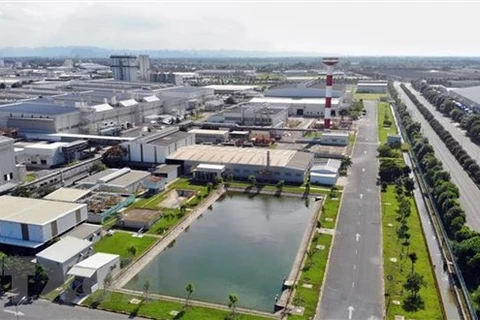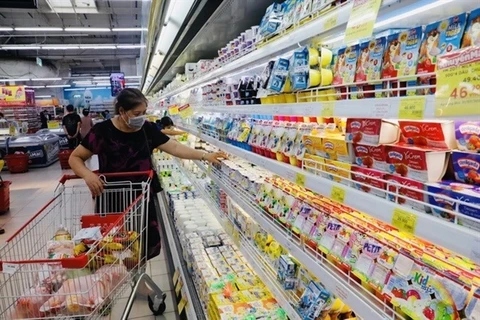 People buy petrol at a station in Hanoi. VCCI argues that since gasoline is not a luxury item, imposing an excise tax on it is unnecessary.(Photo: VNA)
People buy petrol at a station in Hanoi. VCCI argues that since gasoline is not a luxury item, imposing an excise tax on it is unnecessary.(Photo: VNA) In response to the MoF's official dispatch on the draft Law on Special Consumption Tax, VCCI notes that gasoline products are subject to two forms of taxes, both of which aim to restrict consumption including excise tax and environmental protection tax.
It argues that since gasoline is not a luxury item, imposing an excise tax on it is unnecessary and only serves to protect the environment which is redundant as gasoline products are already subject to the environmental protection tax.
The VCCI recommends that the drafting agency investigate the possibility of removing the excise tax on gasoline, and if necessary, adjust the environmental protection tax to achieve the objectives of this tax.
This is not the first time the VCCI has suggested removing the excise tax on gasoline. In September of last year, the VCCI submitted a written response to the MoF suggesting that the reduction of taxes on petroleum products would help control inflation, stabilise the macro-economy, support businesses and boost economic recovery.
Despite the VCCI's recommendations, the Ministry of Finance maintains that the excise tax on gasoline is necessary to combat climate change and achieve its goal of reducing net emissions to zero by 2050.
The Ministry argues that gasoline is a fossil fuel, and because it is non-renewable and needs to be used sparingly, most countries impose excise taxes on gasoline. The Ministry believes that this regulation is in line with the objectives of the excise tax and is in accordance with international practices.
At present, ordinary gasoline is subject to a 10% excise tax, while bio-gasoline E5 is taxed at 8%, and gasoline E10 at 7%./.
VNA






















